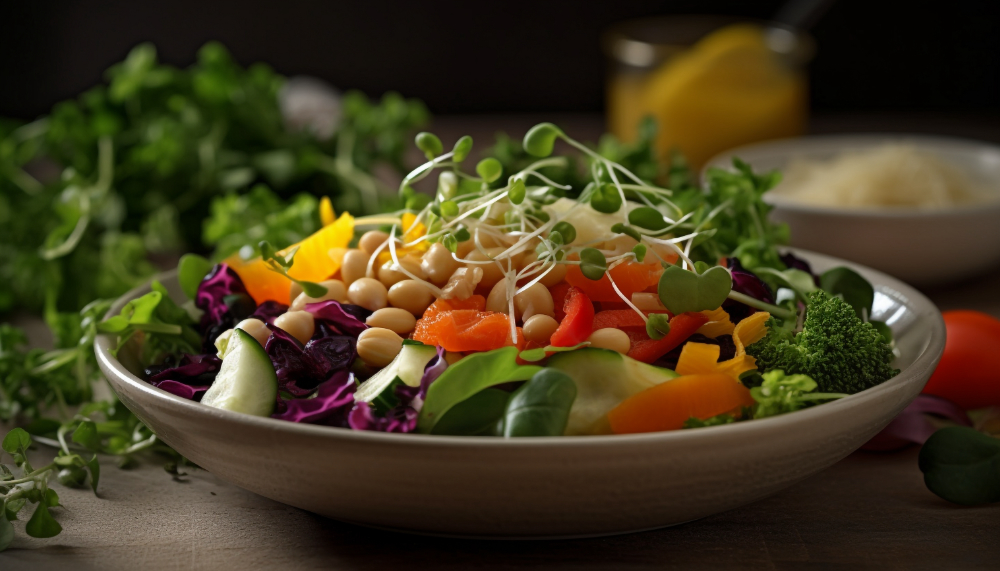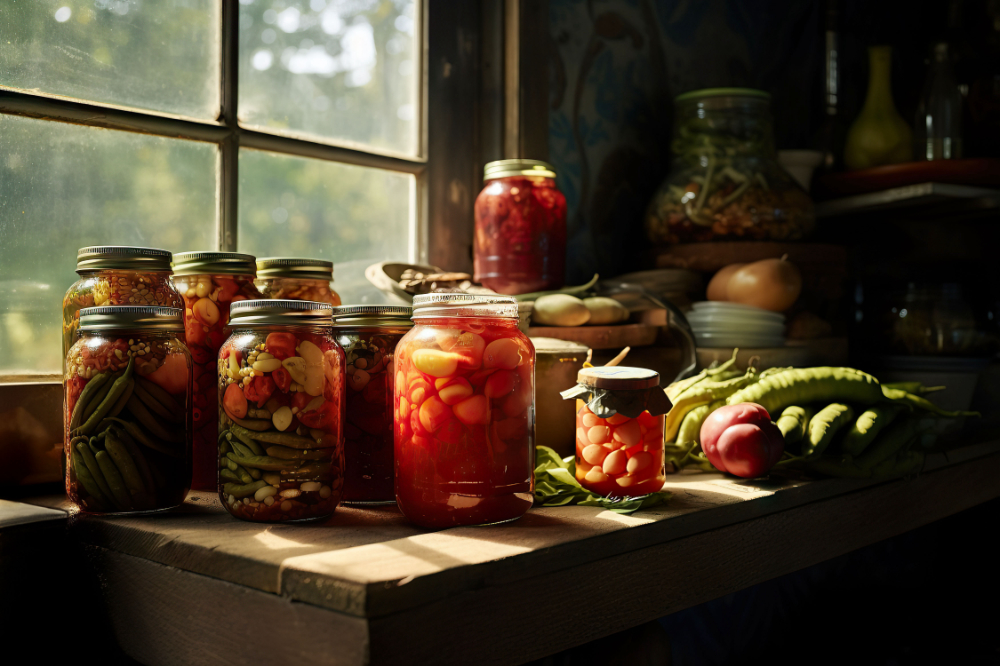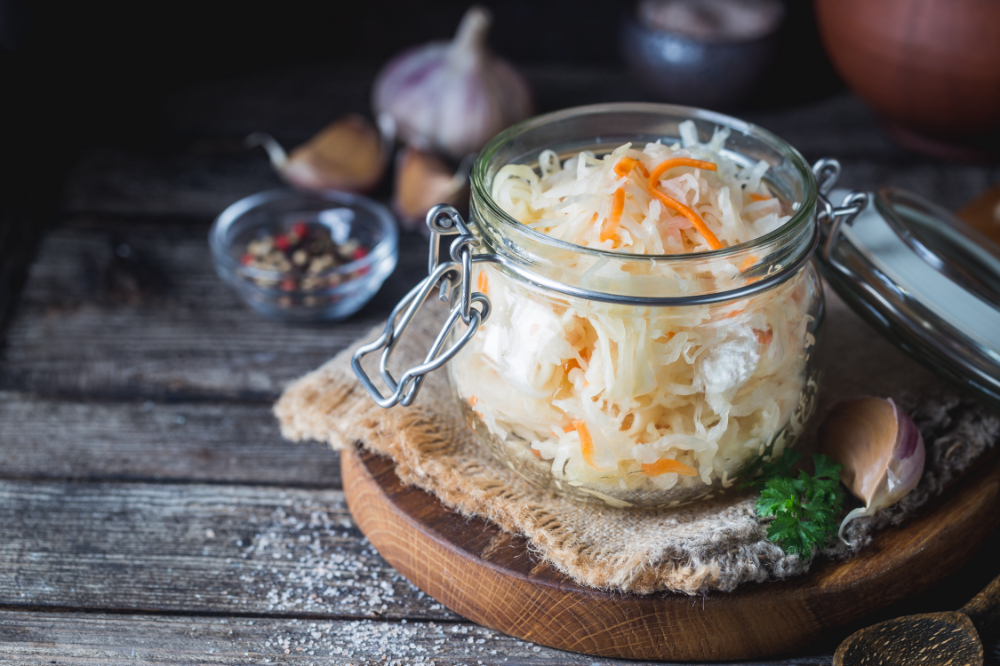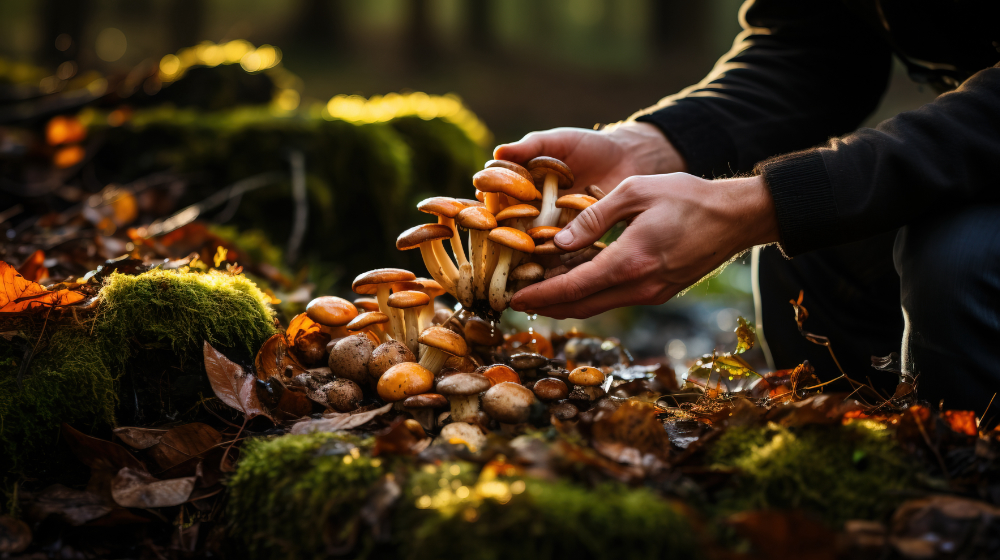There are many reasons to eat sprouted seeds. In the quest for healthier eating, many have turned their attention to the humble seeds and legumes that have been nourishing humans for centuries. But what if we told you there’s a way to unlock even greater nutritional potential from these dietary staples? Enter the world of sprouting – a natural, age-old practice that transforms beans and seeds into nutritional powerhouses.
In this article, we embark on a journey through the world of sprouted beans and seeds, unveiling the remarkable benefits they offer. From increased nutrient absorption to improved digestibility and enhanced flavor, we’ll explore how the simple act of sprouting can elevate these pantry staples into superfoods. So, fasten your seatbelt, as we delve into the science, taste, and health advantages of incorporating sprouted beans and seeds into your diet.
Sprouted beans and seeds offer several health benefits compared to their unsprouted counterparts. Here are some of the advantages of including sprouted beans and seeds in your diet:
Health Benefits
Improved Nutrient Absorption From Sprouts:
Sprouting enhances the bioavailability of nutrients by reducing antinutrients like phytic acid and enzyme inhibitors. This makes it easier for your body to absorb essential vitamins and minerals.
Sprouting Increases Nutrient Content:
Sprouting can significantly increase the levels of certain vitamins, such as vitamin C, B vitamins (including B2, B5, and B6), and folate, as well as minerals like iron and calcium.
Srouting Enhances Digestibility:
Sprouting breaks down complex carbohydrates, making the beans and seeds easier to digest. This can be particularly beneficial for individuals with digestive sensitivities or conditions.
Sprouts Contain Higher Protein Content:
Sprouted beans and seeds may contain slightly higher protein content than unsprouted varieties. The sprouting process can also increase the availability of amino acids.
Sprouts Have Reduced Phytic Acid:
Sprouting reduces the phytic acid content, which is known to inhibit the absorption of minerals like calcium, magnesium, and zinc. Lower phytic acid levels mean that your body can absorb these minerals more effectively.
Enzyme Activation in Sprouts:
Sprouting activates enzymes that can aid in digestion and metabolic processes. These enzymes can help your body break down complex nutrients and improve overall digestive health.
Sprouts Have an Alkalizing Effect:
Sprouted foods tend to have an alkalizing effect on the body, helping to balance pH levels, which can contribute to better overall health.
Sprouts Have Increased Antioxidants:
Sprouting can boost the levels of antioxidants, such as flavonoids and polyphenols, which help protect cells from oxidative stress and damage.
Sprouting Improves Texture and Taste:
Many people find that sprouted beans and seeds have a milder flavor and more tender texture, making them more palatable.
Sprouts Have Potential Blood Sugar Benefits:
Some studies suggest that sprouted legumes may have a lower glycemic index (GI), which can be beneficial for those looking to manage blood sugar levels.
It’s important to note that while sprouted beans and seeds offer these benefits, they should still be consumed as part of a balanced diet. Additionally, the cleanliness and hygiene of the sprouting process are crucial to prevent foodborne illnesses. Sprouting should be done with care, and if you’re unsure, it’s a good idea to purchase sprouted products from reputable sources.
As with any dietary changes, it’s wise to consult with a healthcare professional or nutritionist, especially if you have specific dietary restrictions or health concerns.
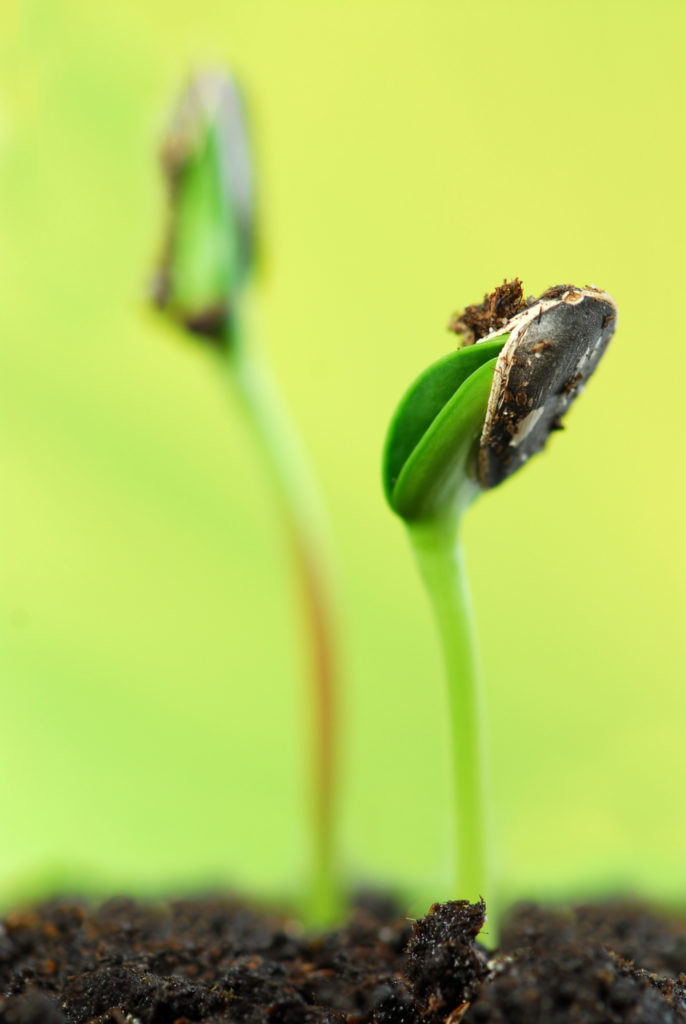
What Seeds are Good for Sprouting?
When it comes to sprouting seeds, it’s essential to choose seeds that are suitable for sprouting. Not all seeds are safe or appropriate for sprouting due to potential contamination or the presence of natural toxins. Here are some common seeds that are commonly used for sprouting:
- Mung Beans: Mung beans are one of the most popular choices for sprouting. They are nutritious and sprout relatively quickly.
- Alfalfa Seeds: Alfalfa sprouts are mild in flavor and packed with vitamins and minerals. They are commonly used in salads and sandwiches.
- Lentils: Lentils are easy to sprout and offer a nutty flavor. They are rich in protein and fiber.
- Broccoli Seeds: Broccoli sprouts are known for their high levels of sulforaphane, a beneficial compound with potential health benefits.
- Radish Seeds: Radish sprouts have a spicy, peppery flavor and add a zesty kick to salads and sandwiches.
- Chia Seeds: Chia seeds can be sprouted into nutritious microgreens with a mild, slightly nutty flavor.
- Sunflower Seeds: Sunflower sprouts are crunchy and have a mild, nutty taste. They are a good source of nutrients like vitamin E and magnesium.
- Quinoa: While quinoa is typically cooked, it can also be sprouted for added nutritional value and a unique texture.
- Wheatgrass: Wheatgrass sprouts are commonly juiced for their potential health benefits. They are rich in vitamins, minerals, and chlorophyll.
- Clover Seeds: Clover sprouts have a mild, slightly sweet flavor and are often used in salads and sandwiches.
Before you start sprouting any seeds, it’s important to ensure that they are specifically labeled as suitable for sprouting. Additionally, practice good hygiene and follow proper sprouting procedures to minimize the risk of contamination. Always rinse and drain your sprouts regularly, keep your sprouting equipment clean, and store the finished sprouts in a clean, airtight container in the refrigerator.
Keep in mind that some seeds, such as those from beans like kidney beans or castor beans, should never be sprouted or eaten raw, as they can contain toxic compounds that are only neutralized through cooking. Always verify the suitability of seeds for sprouting and follow recommended guidelines to ensure safety and enjoy the nutritional benefits of sprouts.
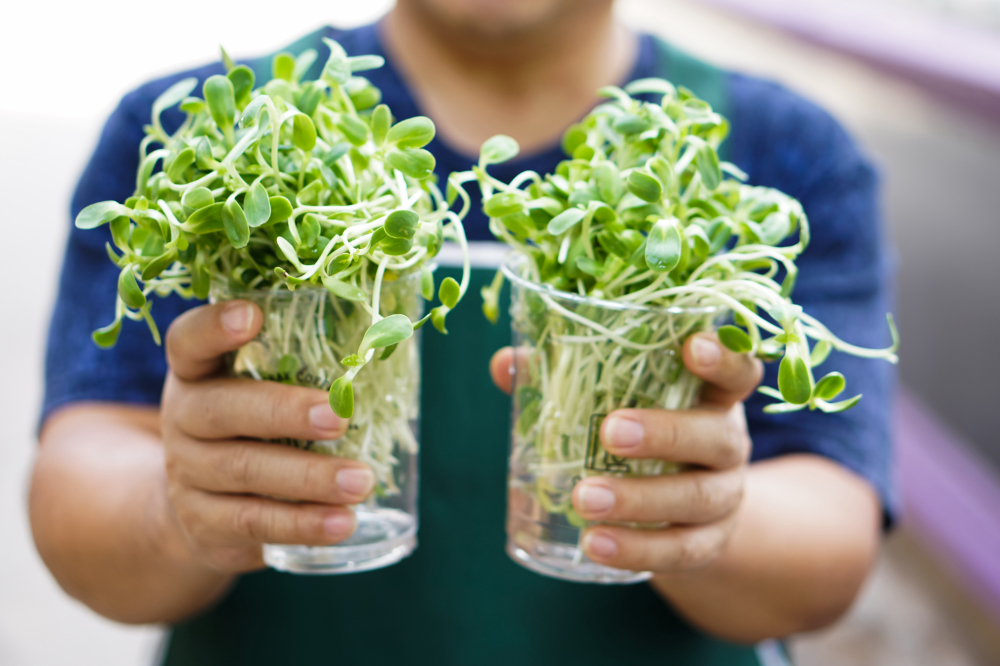
So How Do We Make Sprouts?
Sprouting seeds in your kitchen is a straightforward process that requires minimal equipment and effort. Here’s a step-by-step guide on how to sprout seeds in your kitchen:
Materials You’ll Need:
- Seeds of your choice (e.g., mung beans, alfalfa, lentils, broccoli, etc.)
- A glass or plastic sprouting jar or a clean glass container with a lid or mesh screen
- Cheesecloth or a mesh screen (if your container doesn’t have a built-in one)
- Water
- A dark cupboard or a dish towel (optional)
- Patience
Step-by-Step Instructions For Sprouting Seeds:
1. Select and Rinse the Seeds for Sprouting:
Choose the seeds you want to sprout. Make sure they are suitable for sprouting and haven’t been treated with chemicals.
Measure the desired amount of seeds based on the instructions provided on the seed packaging. Typically, a tablespoon of seeds is a good starting point.
2. Rinse the Seeds Before Sprouting:
Place the seeds in a fine-mesh sieve or strainer and rinse them thoroughly under cold running water.
3. Soak the Seeds in the Container:
Transfer the rinsed seeds to your sprouting jar or container.
Add enough water to cover the seeds by about an inch or two.
Allow the seeds to soak for the recommended time, which can vary depending on the type of seeds (usually 4-12 hours). You can find specific soaking times for different seeds in sprouting guides or on seed packaging.
4. Drain the Water From the Sprouting Container:
After soaking, drain the water from the seeds through the sieve or strainer. Ensure all excess water is removed.
5. Rinse and Drain the Seeds:
Rinse the seeds with fresh water and drain them again.
Repeat this rinsing and draining process 2-3 times a day, depending on the seeds. The goal is to keep the seeds moist but not waterlogged.
6. Sprout the Seeds:
Continue rinsing and draining for several days, typically 2-7 days, depending on the type of seeds and the desired sprout length.
During this time, the seeds will start to germinate, and you’ll see small sprouts emerging from them.
7. Optional Sprouting in Darkness:
Some people prefer to place their sprouting container in a dark cupboard or cover it with a dish towel during the sprouting process. This helps prevent the development of green leaves on the sprouts, as they’ll grow in the dark and remain pale.
8. Harvest the Sprouts:
- When your sprouts have reached the desired length (usually 1-3 inches), they are ready to be harvested.
- Rinse the sprouts one final time and drain thoroughly.
- Gain energy from the sun: Some people will actually place their sprouts on the window sill to trigger the leaves to produce chlorophyll, which is a source of energy from the sun.
- Store the sprouts in the refrigerator in a clean, airtight container for up to a week.
Remember to always use clean equipment and practice good hygiene throughout the sprouting process to minimize the risk of contamination. Enjoy your freshly sprouted seeds in salads, sandwiches, wraps, or as a nutritious garnish for various dishes.
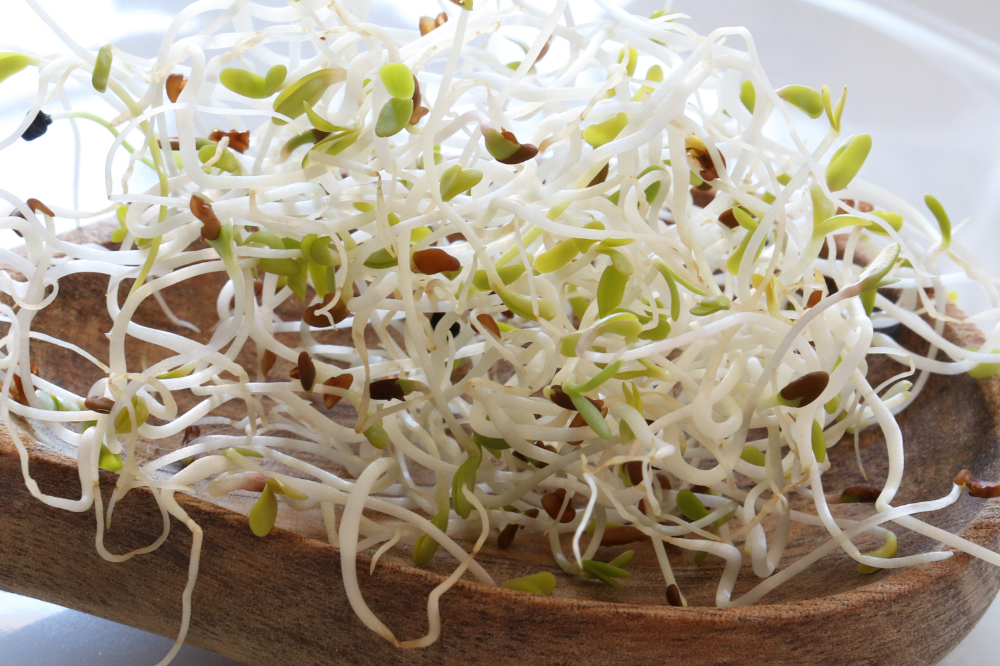
In conclusion, the simple act of incorporating sprouted seeds into your diet can yield a wealth of health benefits. From enhanced nutrient absorption and improved digestibility to increased antioxidant content and elevated flavors, sprouted seeds are nutritional powerhouses that offer a convenient and accessible way to boost your overall well-being.
Whether you’re looking to add more vitamins and minerals to your diet, improve your digestive health, or explore new culinary possibilities, sprouted seeds are a versatile and nutritious addition to your kitchen. Add them to your salads or include them in your smoothies and gain their energy.
So, why wait? Embark on this flavorful and healthful journey by embracing the art of sprouting seeds. By doing so, you not only unlock the potential of these tiny wonders but also embark on a path to better health, one sprout at a time. Happy sprouting and savoring the rewards of a sprout-filled life!

